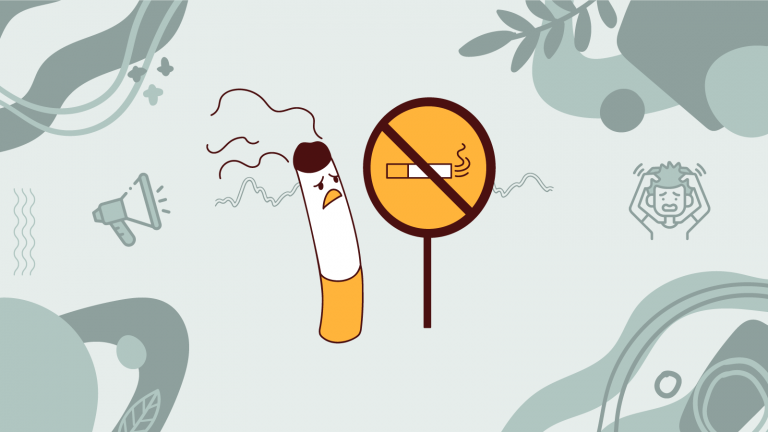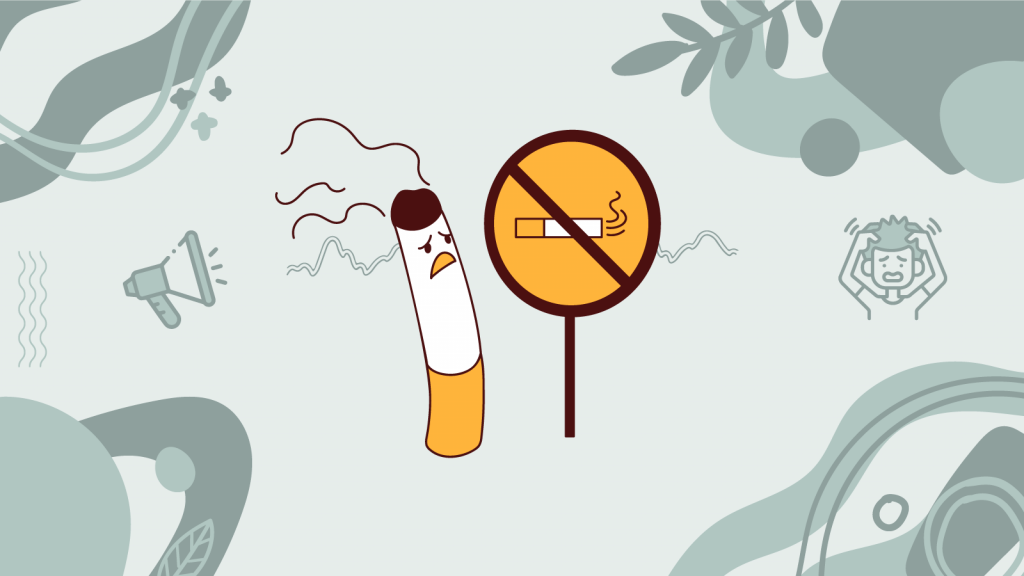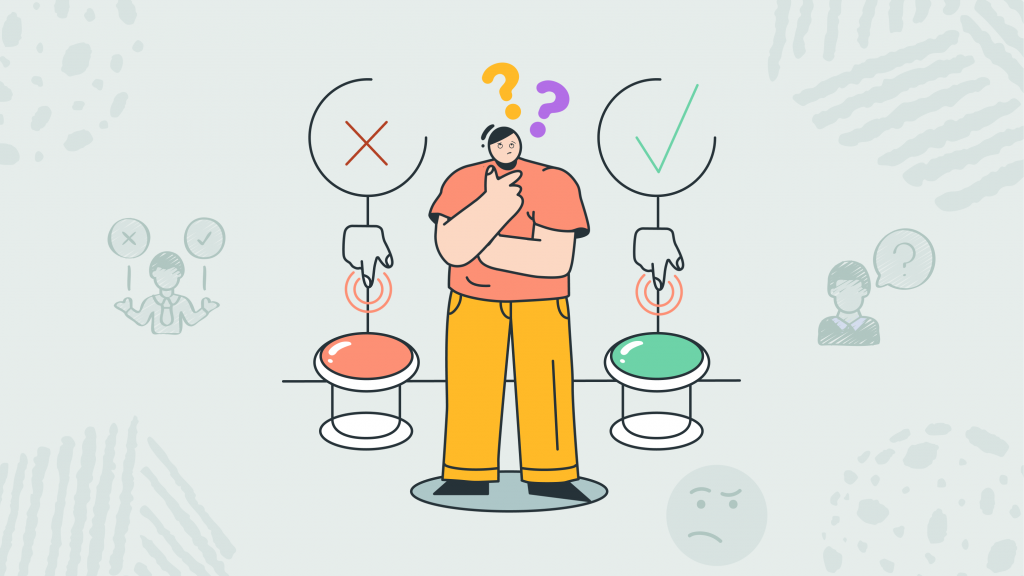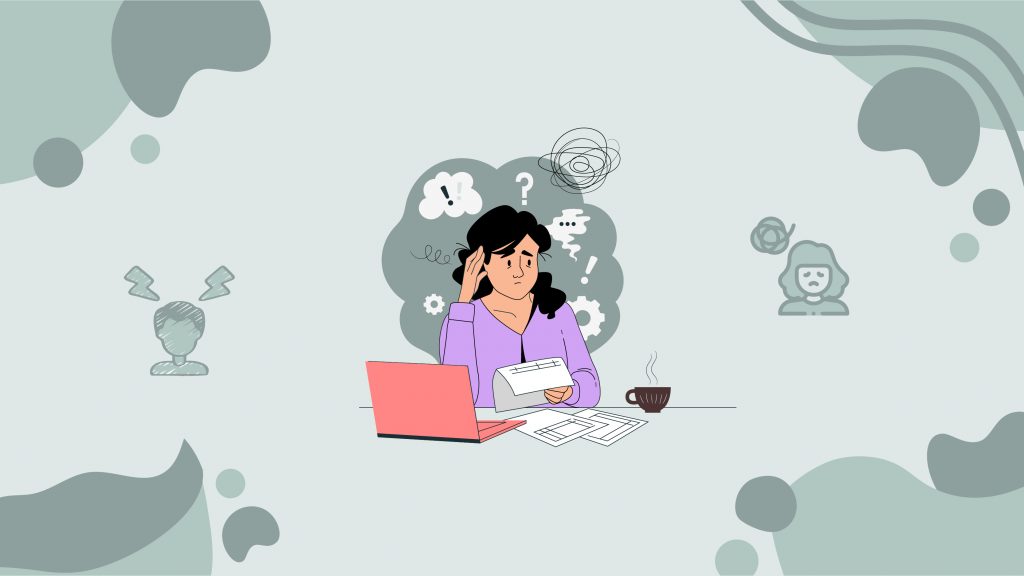It isn’t uncommon to find people returning to the smoking habit despite making countless promises to quit. If you are a part of this league, there is no need to drown yourself in the guilt pool. It might appear a simple affair on the surface, but it isn’t as straight and simple as it looks.
Leaving smoking can be a real challenge if you have gotten yourself habitual of it in the first place. In this article, we will discuss why this happens and how we can eliminate it from our lives.
Read through the sections to gain a thorough understanding so that you can uproot this addiction from its root.
Why is Smoking so Addictive?
We all know the harmful effects of smoking a cigarette and still find it challenging to quit smoking. It is because of nicotine—an active substance found in tobacco that interferes with our brain chemistry.
Nicotine stimulates the release of neurotransmitters in the brain, particularly dopamine, which is a feel-good chemical. And when the brain adapts to it, it generates the demand despite knowing its ill effects.
As the body develops a tolerance to nicotine, it asks for more and more of it, leading to your ultimate dependence. This is how we get addicted to smoking and realize it when we are already in its clutches.
Before we get to the ways that can help you free yourself from its clasp, let’s see how it affects overall health and gets us to the point of feeling helpless.
Effects of Smoking
The ill effects of smoking aren’t something that you don’t already know or haven’t heard from people around you. Take a look at how intensely it can affect your mind and body, and decide for yourself.
#1: Affects Your Lungs
According to a study, smoking is responsible for about 85% of all lung cancer cases. The harmful chemicals in tobacco smoke damage the DNA in lung cells, leading to mutations that further become the cause of cancer.
When you smoke, it leaves a severe impact on your lungs. Active smoking can give birth to diseases like chronic obstructive pulmonary disease (COPD), chronic bronchitis, and emphysema. It compromises your lungs’ ability to function properly and leaves you with conditions like damaged airways and decreased lung function, which further brings difficulty in breathing.
#2: Impact Your Immune System
Smoking hampers the functioning of our immune system, which is primarily responsible for fighting off diseases. When a person gets into the habit of excessive smoking, he is gradually moving toward the body’s impaired ability to heal the wounds and recover from illness. Active smokers are more susceptible to diseases like pneumonia, tuberculosis, and respiratory infections. Also, when our immune system is compromised over time, it makes healing a slow process and causes prolonged illness and complications.
#3: Develop a Risk of Cancer
Doing the aftermath of smoking’s ill effects isn’t a complex task. When smoking impacts integral organs like the lungs and heart while compromising the ability of our immune system, it sums up to dragging them to the worst point and causing cancer. A smoker attracts cancer of the lungs, mouth, throat, esophagus, stomach, pancreas, kidney, bladder, cervix, and liver. It is difficult to realize it at the time when you are entangled in the habit of smoking, but once the damage is done, it becomes nearly impossible to reverse it, and a smoker pays a heavy price for smoking tobacco.
#4: Leads to Poor Oral Health
When we indulge in active smoking, it severely impacts our oral health. The harmful smoke that passes through our mouth affects the attachment of bones to our teeth and causes problems like tooth decay, gum recession, and other severe dental problems. The tar and nicotine present in a cigarette tends to leave yellow stains on our teeth and simultaneously affect their appearance. The worst-case scenario is that when such conditions prevail for a long time, it develops into oral cancer.
#5: Deteriorate Mental Health
Not that stress and poor mental health only become the reason for you to fall into the habit of smoking; it is quite capable of deteriorating your mental health to a further grade. When we become dependent on smoking, we may not realize it, but we are getting into an addiction that further degrades our mental health significantly. We fall victim to stress, anxiety, and depression. It may give temporary relief but will bring long-term consequences to our lives.
#6: Cause Aging
Smoking leads to premature aging. It shows up in our appearance, which is hard to ignore. It leads to wrinkles, sagging skin, and a dull complexion. It has a negative effect on our hair and nails, too, making them brittle when they don’t get the essential nutrients. It restricts the oxygen blood flow to the skin and shows up in the form of an accelerated aging process—declining our overall appearance.
Ways to Quit Smoking
According to the Centers for Disease Control and Prevention (CDC), smoking is the leading cause of preventable death in the United States, accounting for more than 480,000 deaths each year. Here’s how you can save yourself from the ill effects of smoking and aspire to healthy living.
#1: Use Nicotine’s Replacement Therapy
Nicotine replacement therapy is when you can use the alternative products of nicotine in place of smoking it in the form of a cigarette. It could be nicotine patches, gum, lozenges, nasal spray, and even inhalers. It helps regulate your cravings with time without having to smoke the harmful chemicals present in tobacco. NRT is available on the doctor’s prescription, and you can use this method to reduce your nicotine consumption in a set period.
Also, there are other alternatives present in the form of e-cigarettes (vapes) that can help you reduce the amount of damage smoking is doing to your health. It offers nicotine in the form of vapors and saves you from the harmful effects of tobacco. You can use them to reduce your cravings and eventually leave them altogether to move towards healthy and peaceful living.
#2: Work on Your Habits
Start by breaking your routine of smoking a cigarette. Smoking is such that it makes its way into your daily routine when you get used to it. This is where you need to make a conscious interference and break the routine. For example, stress might be the trigger, and in times of stress, you subconsciously train yourself to smoke a cigarette and ease yourself. This is where you need to find an alternative for this. From now on, whenever you are stressed, try to use other ways. It could be talking to a friend, sipping a coffee with your loved one, going out for a walk, and so on.
Similarly, there are many other ways in which you can distance yourself from smoking. You can replace your negative habits with positive ones. Try meditating when anxious instead of smoking a cigarette. Indulge in mindful eating in place of mindless snacking. Set clear rewards for your growth and acknowledge your little steps as you progress.
#3: Strengthen Your Will
The determination with which you are trying to quit smoking is what determines the success or failure of your mission. When you set a strong will to quit smoking, nothing can stop you. Work on your reasons, triggers, and motivations to smoke, and you’ll find a way to quit smoking. Finding a deeper purpose and then sticking to it is how you deal with it.
Understand that when you made smoking a habit, there were certain moods, triggers, and reasons that pushed you into it. And now, when you decide to quit smoking, it is important that you revisit them. Fix a date, implement workable strategies to curb your cravings, strengthen your intent, and you’ll see a day when smoking will become a thing of the past.
#4: Choose Your Company Wisely
Isn’t it often the case that we smoke our first cigarette in the pretense of looking cool among our friends? Or we smoked when a friend of ours persuaded us to try it for fun. It explains why we need to be careful with our company.
It is still valid in times when you are addicted to smoking and finding ways to quit it. When we are trying to quit smoking, it is important that we surround ourselves with people who support us in the journey of quitting smoking. How they stand in our support and help us overcome the urge to smoke is what makes it a successful mission.
#5: Seek Professional Help
Don’t feel bad when your efforts to quit smoking have gone in vain. If you are determined to come out of this trap, you can always seek professional support to make it to your goal.
A doctor’s consultation can make this journey easier. First, you get the personal assistance of a health professional to keep your track from time to time. Second, they may prescribe certain medications (depending on your health), like varenicline (Chantix) and bupropion (Zyban), to help you reduce your cravings and withdrawal symptoms. It strictly depends upon the doctor how he chooses to treat you.
Key Questions to Consider:
- Do you feel you are at the stage where you need the help of certain medications?
- Do you prefer a gradual reduction or a one-time attempt?
- Do you think you need family and friends’ intervention to help you quit smoking?
Conclusion
The effects of smoking are devastating. It impacts your respiratory and cardiovascular health in the most adverse ways. Also, the mental agony it causes you takes a severe toll on you and your family’s happiness. The sooner you quit, the better it is for your overall well-being. If you are under the deep influence of smoking, consider adopting alternative ways like NRT, rebuilding your habits, and seeking professional help if it demands. This way, you can take a back route to your health and happiness—leaving the addiction of smoking.
FAQ’s
It varies from person to person. For some, it takes weeks; for some, it may take months; it strictly depends upon the person’s condition and their intent to overcome this addiction.
The withdrawal symptoms include anxiety, irritability, increased appetite, difficulty in concentration, and cravings. These symptoms are temporary and leave as time goes by.
Yes. It is possible to do without NRT. If you have a strong will and don’t feel the need to rely on any of these methods, you can stay on your mission without having to transition through NRT.
You can help them by remaining empathetic and understanding towards them. Understand that this is not an easy addiction to get rid of. You can often stand in their support and reignite their will in tough times.
Sources:
- Health effects of cigarette smoking. https://www.cdc.gov/tobacco/data_statistics/fact_sheets/health_effects/effects_cig_smoking
- How to quit using tobacco.
https://www.cancer.org/cancer/risk-prevention/tobacco/guide-quitting-smoking.html - Coverage for Tobacco Use Cessation Treatments.
https://www.cdc.gov/tobacco/quit_smoking/cessation/coverage/index.htm





















